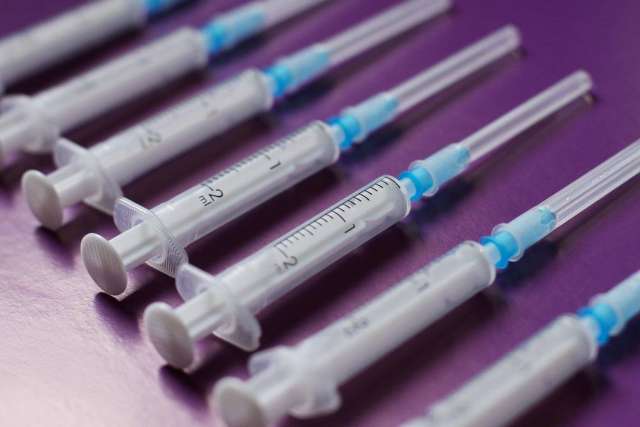Hello, dear readers, and welcome back to our ongoing discussion about the COVID-19 vaccine. We’re tackling two topics that generate a lot of mail: potential allergies to vaccine ingredients, and the future of booster shots.
-- We continue to hear from a number of readers who want to receive the vaccine but are concerned about an allergic reaction.
“The advice always says not to get the vaccine if you're allergic to any of the ingredients,” a reader said. “How in the world is one to know? I finally found that both Pfizer and Moderna use polyethylene glycol or polypropylene glycol, but it turns out that there are no tests to know if you’re allergic to those.”
The reader is correct that it’s difficult to know if you’re allergic to the so-called "filler" ingredients in a vaccine. These are the non-medicinal parts of the vaccine in which the active ingredients are suspended. However, both polyethylene glycol and polypropylene glycol are common fillers that are used in numerous medications, as well as in many vaccines. Anyone who has tolerated other vaccines in the past faces only a minuscule risk with the COVID vaccines.
To allay your fears, you can arrange to receive your vaccination in a hospital setting. However, even ordinary vaccine clinics are stocked with emergency supplies and equipment to immediately address an adverse reaction. In our opinion, the tiny risk associated with the vaccine is far outweighed by the enormous benefit to the individual, and to those around them, of getting the inoculation.
-- As soon as vaccines became available, the question of booster shots arose. It’s of particular importance to people like this reader, who lives with a fragile immune system.
“I understand that, since I am a transplant patient, the vaccine does not provide enough of the antibodies to protect me against COVID-19,” she wrote. “How do I go about getting a third shot?”

As of Aug. 12, the Food and Drug Administration has authorized the use of a booster shot of the COVID-19 vaccine for certain immunocompromised individuals who are at increased risk of developing severe disease. This includes organ transplant recipients and others with similarly compromised immune systems. It is expected that the group of people who are eligible to get a booster shot will begin to expand as soon as this fall. This will likely apply to health care workers, nursing home residents, and those who were the first to receive the vaccines.
As a reminder, the Pfizer vaccine is authorized for emergency use in individuals who are age 12 and older. The Moderna vaccine is authorized for emergency use in people 18 and older. The vaccines are also now recommended for those who are pregnant or breastfeeding. A review of data collected from 2,500 pregnant women who received a COVID-19 vaccine before 20 weeks of pregnancy found it to be safe, with no increase in miscarriage rates. COVID-19, however, poses a real risk.
This pandemic is dynamic and ever-shifting. As new information is released, new questions arise. Please feel free to write to us. We’ll do our best to answer your questions and support you during these challenging times.
(Send your questions to [email protected]. Owing to the volume of mail, personal replies cannot be provided.)





